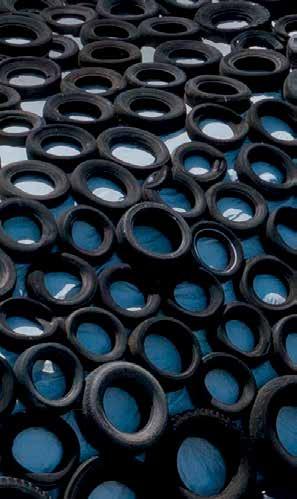






SUDESH KISSUN
FARMERS ARE cautiously welcoming the Government’s decision to hold an inquiry into rural banking.
Federated Farmers spokesman Richard McIntyre says while this is great news, “it’s the start of the journey rather than the destination”.
“The terms of reference will be key to ensuring that all the concerns farmers have are thoroughly examined, problems identified and then most importantly solutions found and implemented,” he told Rural News
He also confirmed that an online petition pushing for a rural banking inquiry, launched at Fieldays last week, will remain active.
McIntyre says the Feds wants to show, through the online petition, how much farmers care about the issue.
“While we feel good about the government announcement, there’s still a
Farmlands chief executive Tanya Houghton was at the Fieldays last week helping customers try out the co-op’s latest offering, FarmlandsPRO, a bespoke online and app-based tool. The feedback has been positive, she says. Full story Page 4.
long way to go before we reach a gamechanging destination,” he says.
Last week, Finance Minister Nicola Willis wrote to the chairs of the finance and expenditure, and primary production select committees, requesting a select committee inquiry into banking competition with a focus on rural banking.
The two select committees will jointly develop terms of reference, join meetings to hear submissions relevant to rural banking, and prepare a report
on rural banking to feed into the overall inquiry, according to Willis.
The inquiry has the support of National, ACT, NZ First and Labour. Rural Women New Zealand has also thrown its support behind the probe.
Labour agriculture spokesperson Jo Luxton, a member of the primary production select committee, says submissions to the committee paint a grim picture of the financial strain many farmers are under.
“Our select committee has heard
that one in four farmers are now feeling under financial pressure, which is affecting their mental health,” she says.
“I will be advocating for the inquiry to have a strong focus on rural banking, what’s happening in the industry, competition, interest rates and access to finance.”
ACT MP and primary production committee chairperson Mark Cameron says he’s heard from countless farmers about the disparity between rural and urban bank lending practices.

“I have been working on this issue since I became chair last year. In February, the committee opened a briefing into rural bank lending, and we heard numerous concerns from farmers and others in rural communities.
“Based on this feedback, the committee considered this issue was worthy of further scrutiny.
“Banks play an important role in our communities and we must ensure they’re operating in the best interests of all New Zealanders.
“Where issues like overly burdensome regulation that pushes up costs and compliance exist, this is an opportunity to put a target on it. I look forward to progressing this important piece of work to ensure the best outcome for rural New Zealand.”
Rural Women New Zealand chief executive Gabrielle O’Brien says their members tell them that rural communities are experiencing a range of issues with their banks and that banks are not currently meeting their needs.
“The range of issues is broad and includes everything from constrained access to lending and high interest rates to the closure of rural bank branches and ATMs.
“Our members are also concerned there’s an over-reliance by banks on digital services as opposed to personal banking services which is leaving rural communities without adequate support.
“This is especially the case when some rural communities continue to experience poor connectivity,” O’Brien says.


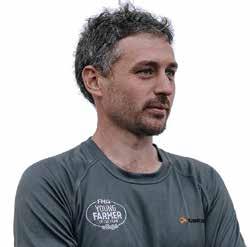
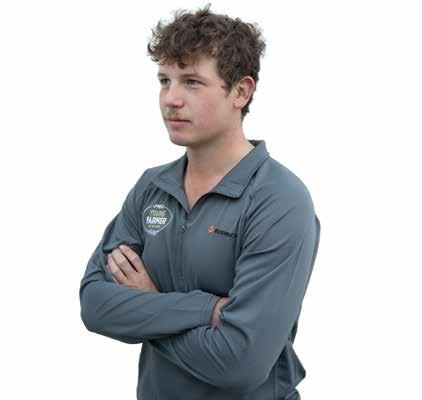


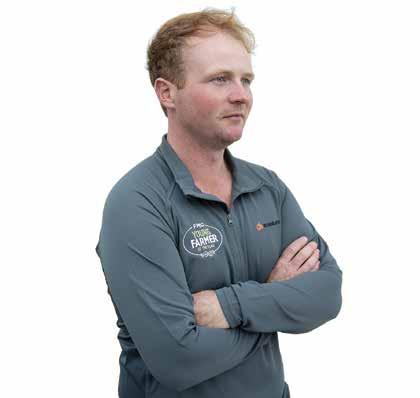

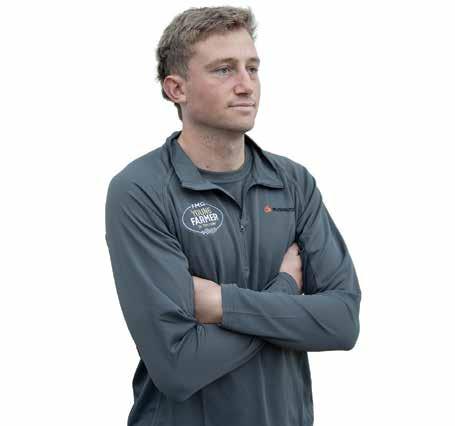




NEWS 1-8
9
10-11
EDNA 12
12
12-13
15
HEALTH 16
17-18
RURAL TRADER 18-19
HEAD OFFICE
Lower Ground Floor, 29 Northcroft Street, Takapuna, Auckland 0622
Phone: 09-307 0399
Fax: 09-307 0122
POSTAL ADDRESS
PO Box 331100, Takapuna, Auckland 0740
Published by: Rural News Group
Printed by: Inkwise NZ Ltd
CONTACTS
Editorial:
editor@ruralnews.co.nz
Advertising material: davef@ruralnews.co.nz
Rural News online: www.ruralnews.co.nz
Subscriptions: subsrndn@ruralnews.co.nz
peterb@ruralnews.co.nz
EXCEPT FOR horticulture, New Zealand’s main primary exports – namely dairy, meat and wool and forestry - are in for a bumpy ride in the coming 12 months.
That’s according to the latest Situation and Outlook for Primary Industries (SOPI) report, produced by the Ministry for Primary Industries and released at the National Fieldays last week.
For the next 12 months, starting July 1, MPI is forecasting that overall export returns for the next year will be down by 5% to $54.5 billion on last year’s record $57.4 billion. But MPI is expecting things to get better a year or more later and return to the highs of 2023.
The SOPI report is a quarterly snapshot of the market outlook for the primary sector, and it attributes the problems coming in the next 12 months to slower global growth – especially in our key export market China. It also notes that higher global production from other countries will dampen export prices. This news is not exactly unexpected and for several months, predictions of a bad year ahead have surfaced on a regular basis.
On the home front, the SOPI report says farm input costs will remain elevated in 2024-25 putting a squeeze on farm profitability although it says that some help for farmers has come with a 7% drop in fertiliser prices.
But at a high level, NZ’s dependence on China remains probably the biggest challenge – for dairy, meat and fibre and forestry, but not so much horticulture. The SOPI report says while the Chinese economy grew slightly in the past few months, consumer demand there remains weak. But the report says running counter to that, large emerging economies are performing well, and that global trade is forecast to rebound.
Looking at individual commodities,
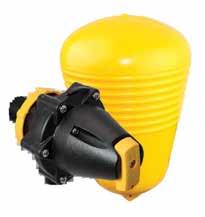
•Ideal for Cattle Troughs •High Flow
Mount
to Clean


the report shows that export returns from dairy products in 2024 will drop by 7% to $24.1 billion and will take another two years before they return to the record 2023 numbers. It says this is due to a weakening of global demand and an increase in supply globally including increased Chinese production. The report also notes the volatility the sector faces and points to the fact that this is reflected in the fact that farmgate milk price has been revised upwards and downwards by Fonterra.
Meat and wool exports will take a tumble this year and are forecast to be down by 6% to $11.4 billion. Taking the biggest hits are mutton and wool prices with neither expected to bounce back in the coming years. Lamb returns are down and predicted to take at least four years to return to what they were in 2023.
However, beef prices will take a small drop in 2024, but the future looks much better with beef returns forecast
to hit close to $5 billion in 2028.
Forestry exports will face a 7% drop in 2024, but the long-term trend is positive.
The star of the SOPI report is undoubtedly horticulture, which despite all the adversity it has suffered with adverse weather events is expected to make a modest 1% increase in 2024 but is predicted to jump a massive 13% in 2025. This is due to stand out performances by the kiwifruit and apples and pears sectors. Interestingly, horticulture is creeping up to challenge meat and wool as the number two export earner. By 2028 meat and wool will hit $13 billion, while horticulture will be close to $10 billion.
While returns for the most part will be down on 2023, it should be remembered that this was a record year anyway and so the overall picture is far from gloomy. The big question mark is what will happen with China and what other geopolitical events are in store.

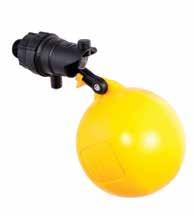
•Ideal for Small/Low Demand Troughs
Flow ve/Below Water Mount
MPI DIRECTOR-GENERAL, Ray Smith believes the downturn actually bottomed out in about January, and since then says things have been on the improve but adds that every sector will have different trajectory or timeline as to when there will be an improvement. He says the downturn has been short and sharp and hopes the recovery will be fast.
“Dairy will likely bounce back in a year, but it will take longer for meat and wool to get back to past levels,” he says Smith says for dairy, volatility may be the order of day but says there is a likely return to better farmgate pay outs with MPI predicting an $8.50 payout. He notes the problems the red meat sector is facing especially in China, but adds that the US meat market is currently very strong
For Smith, horticulture is a rising star and says it has a lot going in its favour including consumer strong consumer demand for healthy foods such as kiwifruit. He says the apple and pear sector has recovered very well considering the devastation it suffered with Cyclone Gabrielle. He says the other thing going for the horticultural sector is that it has the most balanced portfolio of consumerfriendly markets and is not reliant on one main market.
Agriculture Minister Todd McClay says it’s not been an easy year for the sector, but says his government is focused on backing farmers and growers and putting more money in their pockets so they can continue to adapt, evolve and innovate in the future. He says his government has already begun work on reducing the impact of Wellington bureaucrats on farming by cutting red tape and ensuring regulations are fit for purpose.

in Check-Valve •Ideal for Compartment Troughs/Tanks •High Flow
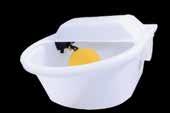

to Clean


THE GOVERNMENT’S decision to keep agriculture out of the New Zealand emissions trading scheme (ETS) has been roundly applauded by farmers.
Beef + Lamb New Zealand (B+LNZ) chair Kate Acland says it has consistently argued that agriculture going into the ETS would be a disastrous outcome.
“We welcome certainty about this being removed,” she says.
DairyNZ chair Jim van der Poel says the announcement is positive, following a huge amount of uncertainty for dairy farmers.
“New Zealand’s dairy farmers are among the world’s most greenhouse
gas-efficient producers of milk, and inclusion in the NZ ETS could have shifted production to less-efficient producers offshore, hurting farmers, the economy and the country. That outcome would also increase global emissions.
“To remain internationally competitive, all paths forward must be grounded in a science-based approach. This will ensure a profitable and sustainable future for dairy – and for the rest of New Zealand,” he says.
On the eve of the Fieldays last week, the Government announced that it was delivering on its election commitment to ag agriculture out of ETS. It also announced a new Pastoral
Sector Group to constructively tackle biogenic methane. An industry-wide group, He Waka Eke Noa, which was set up under Labour to reduce greenhouse gas emissions will also be disbanded.
Agriculture Minister Todd McClay says New Zealand farmers are some of the world’s most carbon-efficient food producers.
“The Government is committed to meeting our climate change obligations without shutting down Kiwi farms. It doesn’t make sense to send jobs and production overseas, while less carbon-efficient countries produce the food the world needs.
“That is why we are focused on
finding practical tools and technology for our farmers to reduce their emissions in a way that won’t reduce production or exports.”
Acland backed the disbanding of HWEN, noting that B+LNZ withdrew its support because of the significant impact this would have had on farmers.
But Acland had a message for the Government as well.
“While we are prepared to be part of a new group that discusses how to manage New Zealand’s agricultural emissions, any involvement will be with full transparency and discussion with our farmers.
“We will not allow this to be a
FARMLANDS CHIEF
executive Tanya Houghton says farming is becoming an increasingly digital and data-driven business.
She says as farmers and growers adapt to digital technology, the farmer-owned co-operative is also evolving to meet customer expectations.
Houghton made the comments at the launch of the co-op’s new online and app-based tool, FarmslandsPRO at the Fieldays last week.
“We’re acutely aware of the challenges the rural sector is facing and the need for us to be more responsive and available,” says Houghton.
“Farming is an increasingly digital and
data-driven business and FarmlandsPRO supports this by giving customers better access to their rural supplies information.
“Everything we do is about increasing productivity and profitability for New Zealand farmers and growers. That means making use of the collective buying power of our customers and we’ve already completed a significant product and supply-chain transformation as part of that.”
FarmlandsPRO is a bespoke online and appbased tool that allows customers to place, track and manage their rural supplies orders themselves.
•
repeat of the He Waka Eke Noa process.
“We are being very clear to the Government that our bottom line is that we do not support a price on agricultural emissions as a way of achieving reductions.
“Emissions reductions in the sheep and beef sector are already happening more quickly than needed.
“The significant decline in stock numbers because of afforestation in the last few years means our sector will likely exceed the current target of a 10% reduction in methane by 2030.
“Based on this there is absolutely no justification for a price. This is a non-negotiable for our farmers.”
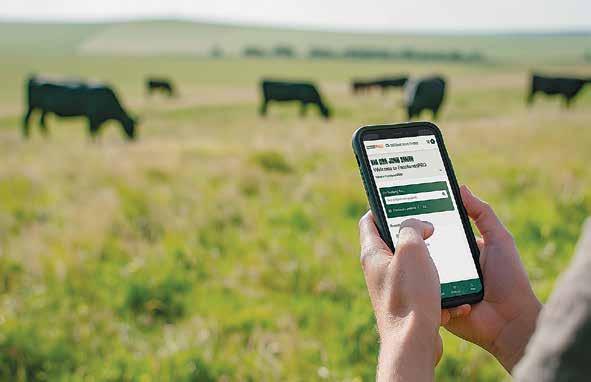
Houghton was at the co-op’s Fieldays site and helped Farmlands customers log onto FarmlandsPRO. She told Rural News that the response from shareholders has been fantastic.
“Farmers are happy with the product, and I couldn’t be happier,” she says.
Houghton says devel-
oping FarmlandsPRO has been taken around 18 months and a significant investment from the co-op.
“It’s personalised to every farmer and

remains a work in progress as we bring new functions to life,” she says.
Several hundred farmers and growers who have started using
the pre-launch version of FarmlandsPRO are already benefiting from gaining greater control of their essential rural supplies. Of Farmland’s 82,000 shareholders,
about half are farmers. Houghton expects about 95% of farmer customers to be using the online tool over time.
“We know that farming doesn’t line up with normal business hours –and our customers need to be able to order rural supplies at a time that meets their business needs, not ours,” says Houghton.
“This was the starting point for developing our new FarmlandPRO tool that will support our customers in owning and controlling their relationship with Farmlands.”
FarmlandsPRO offers a personalised experience for our farmer and grower customers –and includes everything from full order histories, through to existing contracts and farmer-specific discounted rural supplies prices.
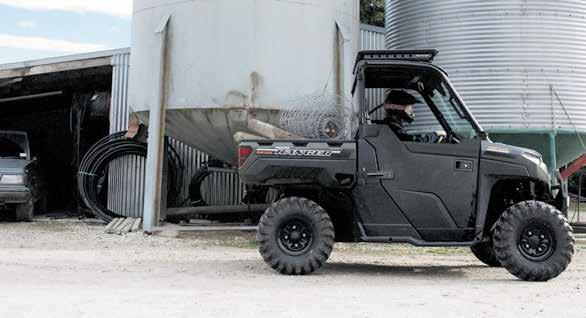

A COMPANY extracting keratin-based ingredients from strong New Zealand wool believes its expansion into new factory premises in Christchurch will help it to a bigger slice of a US$2 billion international market.
Howard Moore, chief executive of Keraplast Ltd, told attendees at the official opening of the new premises that the company exclusively focuses on ingredients made from the protein.
The ingredients have mostly gone into personal care products such as shampoo, including American singer Beyoncé’s Cécred haircare range, but the company is now expanding into nutraceuticals – products with significant medical or health benefits.
Last year it processed 77 tonnes of wool into 14 ingredient products, exported to 19 countries with sales exceeding $10 million.
“Had that wool been exported on the open market, it would have generated much less than half a million dollars,” said Moore.
“This is a success story for adding value in New Zealand. It is Keraplast’s goal to grow that volume of wool processed and, while doing so profitably, be able to assist the viability of the farms that supply the wool.”
The new factory is expected to process 100 tonnes a year.
“The potential for growth in our business is substantial,” he said.
Moore told Rural News that supply farmers, who receive a premium above the current market, must have committed to using regenerative farming practices.
The company was sourcing wool from farms that follow the Savory Institute’s Ecological Outcome Verification (EOV) framework.
“We currently have 15 farmers that meet our criteria. They are located in Southland and the North Island but we would welcome new farm-
ers in Canterbury. With growth of around 25% per year – and potentially more – additional farmers will progressively be required.”
Moore told the opening that the challenges of the wool industry were well understood.
“Shearing costs for crossbred wool now exceed the price paid for the wool on the open market.
“Keraplast is, however, one of a small number of companies in New Zealand that are using this wonderful raw material for new uses.”
He said the company began as Keratec, a portfolio company of the then New Zealand Wool Board’s commercial arm. It was acquired in 2009 by American company Keraplast Technologies.
“The US company’s contribution was an extensive portfolio of patents related to keratin, while the New Zealand company brought R&D, small-scale manufacturing, a fully staffed company and access to a high quality raw material –strong wool from regeneratively-farmed sheep farms,” said Moore.
“It really was a marriage made in heaven.
Although some were sad to see the New Zealand entity become a wholly owned subsidiary of a U.S company, without the acquisition by Keraplast Technologies of Keratec, neither company may have existed today.”
Moore said that since the two companies became one, the New Zealand subsidiary has been almost entirely responsible for the group’s operations, with R&D, manufacturing and marketing being conducted from New Zealand.
While sales to the personal care market had been declining there was a “marked turnaround” in that market since late 2023. Moore said that in partnership with a US distributor, two nutraceutical ingredient products have now been launched in the U.S. and the company was looking forward
to growing sales into the nutraceutical markets of Europe and Asia.
The company acknowledges that it has a responsibility to strive for sustainability, said Moore.
“It is a privilege to be able to use a raw material, crossbred wool from regenerative sheep farms, which do have a low carbon footprint.”



360 Workwear is proudly designed & tested with the help of Kiwi Dairy Farmers from around the country, so we can guarantee that it will withstand the rigours of farming life and weekend recreation, keeping you dry and comfortable in the harshest of conditions.

who
will take over as chief executive of Rural(RWNZ) on 1 July, says it’s important to keep people front and centre as the world evolves and changes.
Fitzpatrick comes to the role after approxi-
mately 20 years in the public sector, with six of those years spent working in the Fisheries New Zealand team at the Ministry for Primary Industries (MPI).
She says that when she started her work with Fisheries New Zealand, she was doing work surrounding a ‘digital transformation’.
“I guess all of my
experience about this kind of human-centered part of designing and delivering services and change management… really came to the fore in that role,” she told Rural

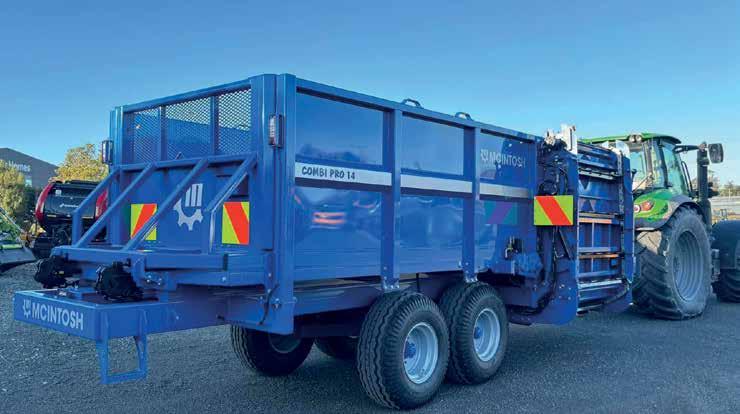
products



News. She says that, at the time, MPI was asking fisheries to perform a significant shift towards digital technology “in an industry that isn’t necessarily particularly sophisticated from a digital perspective”.
“People set these policies, but don’t necessarily understand the nuance of how you can use the technology on your vessel or your farm or whatever it is,” Fitzpatrick says.
“Commercial fishers are an interesting bunch as I imagine the rural sector is in general. I’m very fond of them,” she says. “I would say I’ve gotten to know them really well and I’m looking forward to learning a new primary sector group.”
Fitzpatrick says that over the course of her career she has “seen the pain” that poorly designed regulatory
frameworks can cause.
“I’m really passionate about, you know, that these things that happen and often need to happen, you know, the world needs to evolve and evolve with technology and policies and things like that, but let’s keep the humans front and centre as we evolve those policies and regulations and make sure that they are something that can be absorbed effectively, to make the changes as good and effective as possible.”
Outside of work, Fitzpatrick is also co-founder of the Good Bitches Baking Charitable Trust. She says the charity, which started in 2014, is about providing a moment of kindness to someone having a bad day.
“I guess the two universes have aligned in this job, and it feels like a good fit for me.”
RURAL SCHOOLS could face a dual resourcing crisis when it comes to learning support specialists.
That’s according to the education sector union, NZEI. The union says that due to geographical location, many rural schools are struggling to access Ministry of Education learning support specialists like speech language therapists to meet their students’ needs.
On top of this, they are not receiving funding for learning support coordinators based in their schools.
A spokesperson for NZEI told Rural News there has been a long-term underinvestment in the learning support specialist roles, including a hiring freeze on those roles between 2008-2017.
The union adds that without learning support coordinators, rural school principals will have to fulfil the roles and responsibilities of multiple job descriptions.
“This could be making referrals, liaising with agencies, then managing any recommended strategies and taking responsibility for ongoing monitoring and reporting. This is an extra workload on top of their principal duties,” it says.
“Teacher aides are essential to children thriving in the classroom, so their absence can detrimentally impact the child’s social and emotional development, as well as their ability to learn and work independently.
WAIKATO
ING leader Sam Lewis says he’s surprised and delighted at being made a member of the New Zealand Order of Merit for services to business and the community in the latest King’s Birthday Honours list.
He says there was small family celebration which also doubled as celebration for his upcoming 80th birthday.
Lewis has been chairman of the meat processing company Affco since 1999 and has been a director since 1990. He has seen the company transition from a farmer co-operative, which started back in 1905, to the fully commercial company that it is today.
For over 40 years,
Lewis has been a drystock farmer, but in recent times moved closer to Te Awamutu and is now running the drystock operation for his dairy farmer son Chris Lewis, who is a director of DairyNZ.
Sam Lewis was the treasurer at Waikato Federated Farmers in the late 1970s and early 80s and it was in this role that he began mentoring farmers who were going through hard times.
“Remember, the country was undergoing the big reforms in those days, there was no Rural Support Trust.
“So people came to Waikato Feds and I was involved with helping a lot of people that the Rural Support Trust deals with now,” he says.
Lewis says in those days farmers were often reluctant to seek outside

Choose MARATHON® LA Injection as your pre-lamb treatment to ensure your ewes are in optimal health during the lambing period.
Not only will you have the convenience of the prolonged protection of MARATHON® LA Injection, but if youPURCHASE 40 packs of 500mL*, you will receive a Lanati Astron convenient cordfree handpiece kit (RRP $895).
This world leading, new slimline, high torque handpiece, is the ideal tool for dagging, crutching, and shearing small flocks.
See your local veterinary practice for details.
“Lamb, milk and beef are also affected by the slowdown in the Chinese economy and the word is that it could be early next year before this will improve.”
help, but this has changed and mental health problems are now treated more openly than they were in the 1980s.
He says the current downturn is caused by several well-known factors such as high interest rates and low export returns. Lewis says the interest rates are a consequence of government
dealing with Covid-19.
“Every country in the world did the same thing, so consumer demand has gone down worldwide and that has affected lamb prices because it is a higher priced item.
“Lamb, milk and beef are also affected by the slowdown in the Chinese economy and the word is that it could be early next year before this will improve,” he says.
Lewis says until this happens farmers have just got to buckle down, be confident in themselves and have a simple plan to get them through until things improve.
He says simple plans work well and complicated ones often don’t. He says things will come right but, in the meantime, farmers have to control their costs.
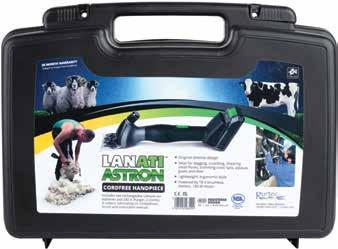


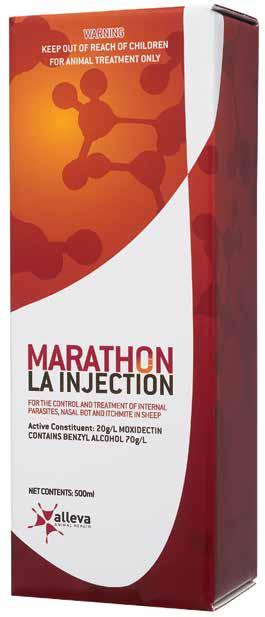

THE AGENCY charged with controlling the serious bee disease American Foul Brood (AFB) has defended itself against criticism from a North Canterbury beekeeper who was recently ordered to destroy equipment following a find of AFB spores in his storage shed.
Steven Brown of Springbank Honey, near Cust, received wide publicity through mainstream and social media with stills and video of him and his family burning about 10,000 empty bee boxes and equipment, which he said was valued at $2 million.
He had been ordered to destroy equipment following the detection of AFB spores on a small number of used bee boxes.
Brown has made several complaints about the process, including that he was told to destroy brand-new still-wrapped boxes, that the finds were minor and would not necessarily lead to hive infection, that the testing and inspection was carried out by other local beekeepers with potential conflicts of interest, and that no compensation was available.
“We are still fighting though the courts and local government to get remedies for what they

did to us, and help other beekeepers going through the same process,” Brown said in a recent Facebook video.
In response to the publicity, the management agency for the National American Foulbrood Pest Management Plan has taken the unusual step of distributing a statement to all beekeepers, laying out its reasons for its actions.


Tailor-made for the 60 plus traveller
Great Britain & Ireland
Jul 14, 2024, 30 Days
Join our timeless adventure across Great Britain and Ireland.
A tapestry of incredible destinations and breathtaking experiences. From London's Royal pageantry and a dazzling West End show, to the historic streets of Oxford and the enigma that is Stonehenge. Journey through the Cornish Peninsula, Cardiff and Waterford and embrace the legend of the Blarney Stone in Killarney. The incredible Ring of Kerry, the dramatic Cliffs of Moher, the rich history of Belfast, the Giant's Causeway. Explore ancient Chester and experience Liverpool. Cruise Lake Windermere, tour Glasgow and visit the
Agency manager Niha Long said she was heartened by support from the sector, and the agency “remained committed to supporting New Zealand beekeepers in their fight against AFB”.
“Following best practices when managing AFB is vital to the sector’s success on several fronts. For one, ensuring that New Zealand’s bee products meet export market requirements.
“Unfortunately, some details were reported incorrectly in recent media coverage.”
Long told Rural News the plan puts the responsibility for AFB management with the beekeepers themselves, who must destroy all infected bees and hives and report the instance within seven days.
“Burning is normal because the spores
cannot be destroyed in any other manner, unfortunately.”
Long said she could not speak about a specific business, but the agency’s statement emphasised a process in which it would not intervene as long as a beekeeper followed the correct steps and regularly implemented best practice.
outbreak on some of his hives in the Lees Valley, with Springbank Honey hives nearby.
The agency’s statement said that when an outbreak of AFB is reported, surveillance is stepped up of registered hives in that vicinity.
“These may be the hives of the reporting beekeeper or could be apiaries owned by other beekeepers situated in a 2km radius.

“Our operations managers refer to the AFB history and past compliance record of every beekeeper in that region.
ing interests in the district, who he accused of spitting at him and making unreasonable demands of his staff for access to his sheds at a time when he had yet to start work for the day.
Gonzalez said that, like all farmers, all beekeepers were “low-level competitors” with each other, but the inspection system had to depend on certified beekeepers who knew what to look for. They had to declare no conflict of interest with the operation they were inspecting.
Marco Gonzalez, the agency’s southern region national operations manager, has confirmed that attention turned towards Springbank Honey in March following another beekeeper reporting an
“Once a source is known or suspected, apiary inspectors (AP2s) may be deployed to inspect all apiaries, monitor any unregistered or abandoned sites, and take swab samples for testing.”
Brown said the inspectors who came to his base at Cust included a woman from a family with competing beekeep-
The formal Notice of Direction, which Brown has supplied to Rural News, ordered him to destroy used equipment housed in the two bays of his storage shed where spores were detected by swabbing. The NoD has no mention of new equipment but Brown told Rural News that he was verbally told by Gonzales to destroy the new boxes as well.
Gonzalez denies that, saying “there is no way we would order anyone to burn new. That doesn’t make sense”.




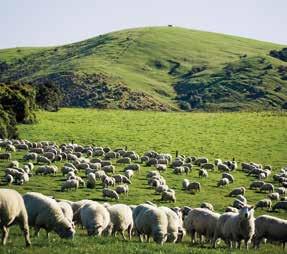
answer is quite simple –quality genetics.
NOTHING BEATS the best bull. That’s the key message coming out of a series of workshops being run by Beef + Lamb NZ around the country.
The objective is encouraging dairy farmers to produce some calves more suitable for the beef industry that offer greater financial returns to both beef and dairy farmers.
The aim of the seminars is to bring dairy farmers, calf rearers and beef finishers together so they can see the benefits of working closely together.
About two-thirds of the beef kill comes from the dairy industry. Some would argue the calf produced by a dairy cow is a by-product because the dairy farmer wants the cow to produce milk and provide replacement animals – hence bobby calves.
Professor Rebecca Hickson is one of the country’s leading geneticists and is a specialist in dairy beef. She says currently the calf is produced with an emphasis on what the dairy farmer needs: short gestation and easy calving.
The end game, she says, is that’s what the beef industry gets, rather than getting a calf that benefits the industry further down the line, which is the growth the industry needs.
Hickson says the
“The real value of using quality genetics in the dairy industry is not widely understood. The challenges come down to the fact that the person buying the straw for the dairy cow is not the person who gets the value from the growth genetics,” she says.
Hickson says progeny tests show that it’s possible, with good genetics, to deliver what the dairy farmer wants and what the beef industry needs, with no compromise needed and no real increase in cost for the dairy farmer.
Hickson says many myths exist around the dairy/beef sector. Some people say one breed of cattle is better than others, but she points out that no one breed of bull is perfect and that bulls from all breeds have traits which deliver high performing progeny. She says there is a belief that sometimes a calf that is born large will grow larger, but this is not necessarily correct.
“In fact, there is data to suggest that the small calf may in many cases being the best bet. This is because the beef breeders have done a phenomenal job of creating ‘curve bender bulls’ – meaning that while a calf may be born small, it will grow fast, will calve easily, and is at least, if not more valuable than the larger calf, she says.
LIC’S EXPERT in this area, Paul Charteris, says his organisation is now seeing more interest from farmers to produce better dairy beef. He says LIC is getting more requests every year for beef insemination into dairy cows.
He says one of the messages from LIC to farmers is to use AI “tactically”.
“That means identifying those cows with the lowest BW and mating them on day one of the mating season with the right semen, at the right time of the mating season, so that you get good big, strong early-season calves that are well marked and are salable,” he says. Charteris says the thing with dairy beef is the eye muscle has to be rounded so it can be used by chefs. He says LIC is selecting bulls with a very high eye muscle area and also good marbling so when crossed over dairy cattle, they produce an acceptable carcass for the processor.
Hickson says some farmers claim that feeding calves well means they don’t need better genetics, but in the end, better genetics will always
be the winner. She says using high performing AI bulls is the answer, but if farmers still want to use a bull, they should select a good one.



Dairy
FONTERRA HAS have kicked off the new 202425 production season with a second consecutive milk price forecast midpoint of $8.00/kgMS. This sits slightly below RaboResearch’s national breakeven milk price assumptions and will
likely provide another season of fiscal constraint for dairy farmers. Dairy commodity markets have improved over the last month.
Butter prices are hovering around 2022 records while prices for powders have lifted from the slump at the end of quar-
ter one 2024. Still, global demand settings remain soft and warrant a note of caution – particularly for fat prices.
The key weight on the global dairy market remains our main trading partner, China. We now anticipate softer import demand for 2024 – mark-

ing the third consecutive year of weaker import volumes. Rabobank’s forecast is for China’s net imports to be 8% lower in 2024 compared to 2023.
Chinese domestic milk production remains a critical factor to consider when assessing farmgate milk price forecast movement for the season ahead.
Global milk production continues to lose steam, helping to keep commodity price equilibrium. Milk production from the ‘Big 7’ exporters has been in collective decline for up to four quarters, beginning in Q3 2023.
New Zealand milk supply dropped in April
2024 on both a tonnage and milksolids basis compared to last year. The season-to-April 2024 is now behind -0.5% on a tonnage basis. There are challenges ahead for the new production season, with rainfall required in some areas before temperatures cool too quickly as winter approaches.
AS WINTER settles in, the normal seasonal flow of beef cattle and cull cows off farm has been apparent in New Zealand. NZ Meat Board data suggests peak cow cull has now passed, with national cow cull up 10% in the calendar year until early May 2024. The focus is
expected to shift to other cohorts of cattle and the NI bull price continues its +10% theme on fiveyear average pricing.
Looking at the New Zealand slaughter season to date, which tracks from 1 October to 30 September, the US is primed to tip the China ship in terms of the value gained from NZ beef. Seasonto-date, the value of beef exported towards US shores sits at $936m, up $203m or 28% year-onyear (YOY). The total value of beef exports to China is sitting at $796m, a drop of 22% YOY.
Year-on-year for the month of April NZ beef exports were up 2.3% by volume to 45,174 tonnes.
The big mover in the opposite direction was China, down 21% to 14,347 tonnes with the US taking number one spot with 17,678 tonnes, up 5% YOY. The volume of exports to both Japan and Canada has again performed well in April, with YOY increases of 169% and 239%, respectively. Total value for beef exports YOY was $402.5m.
RaboResearch anticipates strong beef pricing over the winter months, following both the normal seasonal trends but also driven by global demand, especially over the US summer. There is upside in production out of both Brazil and Aus-

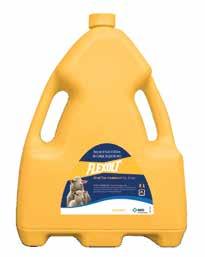

tralia, adding competition, with a lot of Brazil beef heading into China. Despite this, demand due to fewer cattle in the US over a key consumption period in this market is likely to steer our farmgate prices to the upside, and to continue above that five-year average price range.
AFTER MANY months tracking sideways, lamb pricing is starting to see an upswing. This is due to both the usual season trend, on-farm procurement pressures and some higher value export markets taking a bigger role.
To 4 May, national lamb slaughter numbers for the kill season are now tracking 7% ahead at just over 13.2m, according the NZ Meat Board. Long-term slaughter data now suggests a sharp downward trend in bookings from early June until the new season lambs begin and talk now moves to scanning and

the new 2024/25 season ahead.
Lining up with the slaughter numbers, total exports of lamb in April were up 8% YOY to 32,741 tonnes. Exports of all New Zealand sheepmeat in April were 37,057 tonnes, 1.9% lower than April 2023. Calendaryear-to-date, the value of our sheepmeat exports are down by $102.4m, echoing the challenge in this sector for the 202324 season. The average export value for lamb for the 2023/24 kill season (Oct-Sep) to the end of April sits at $10.03/kg FOB vs. $11.16/kg FOB for the same months of the
2022/23 season. This is a sign of the softer export market value, especially out of key market China, which takes around half of frozen lamb exports.
Export markets for both total sheepmeat and lamb tell an interesting tale for April 2024. Good news comes from the UK for our lamb markets, up 73% by volume (to 4602 tonnes) with a value of $41.5m (up 38% YOY). The US jumped on board with volumes of lamb up 51% YOY and an extra $15.2m in export value. Total volumes of all sheepmeat to China are down by 27% YOY to 16,081 tonnes with a drop
of $69m in value (lamb volumes are down 17% to 12,965 tonnes, with value down $44m). China only equated for 26% of total sheepmeat exports by value for April 2024, down from a 40% slice of the value pie in April 2023.
RaboResearch expects the upward trend in lamb pricing to continue over winter, following seasonal trend. Eyes will be on the hope of pricing sneaking back into the fiveyear average range before the new season lamb kill begins.


was a relatively quiet month on the global front. Ammonium Nitrate FOB Baltic Sea Spot was fairly flat monthon-month, and subpar demand will likely keep it that way in the short term. UAN-30 prices in France also remained weak with very limited transactions taking place in recent weeks. US nitrate prices stabilised over the past couple of weeks following a decline earlier in the month amid waning demand.
In late April, Russia announced the extension of its fertiliser export quotas, which will run
from 1 June to 30 November. The new quota is for 19.7mt of fertiliser, of which 12.4mt is nitrogenous fertilisers that should not limit global availability much.
Australian demand at present remains muted. However, the devastating flooding in Brazil’s Rio Grande do Sul state could provide a boost for demand as soil nutrients are suffering there.
One factor which may impact FOB fertiliser prices in Oceania is global container rates.
The WCI index increased 56% in May, surpassing the previous 2024 high
of late January. The risk premium can largely be explained by a combination of continued shipping delays/diversions amid the ongoing Red Sea crisis and concerns regarding a US-China trade war.
Australia and New Zealand remain sensitive to global nitrogen pricing given parts of both countries have experienced adverse weather, which has resulted in less purchasing than normal, meaning more buying is still to come especially as rains in WA and SA might improve farmer confidence there.

THERE WAS an extra spring in the step of farmers at the Fieldays last week.
On the eve of the four-day annual event, the rural sector got the news that the Coalition Government partners were coming good on their election promise to keep agriculture out of New Zealand’s emissions trading scheme (ETS).
The Government also announced the disbanding of He Waka Eke Noa (HWEN), an industry partnership to set pricing and reduce methane emissions on farms, an initiative that never took off among farmers.
Federated Farmers had four words on HWEN’s demise – ‘goodbye and good riddance’.
Federated Farmers, Beef + Lamb NZ and DairyNZ have all welcomed the decision, however, Labour and the Greens are among those who are critical.
Farmers want a measurement and reporting framework that is practical and useful for them. They would never accept a plan that would see 20% of sheep and beef farms, and 5% of dairy farmers, priced out of existence.
For its part the Government is committed to meeting climate change obligations without shutting down Kiwi farms.
It doesn’t make sense to send jobs and production overseas, while less carbon-efficient countries produce the food the world needs.
That’s why the Government wants to focus on finding practical tools and technology for armers to reduce their emissions in a way that won’t reduce production or exports.
Kiwi farmers agree that they are going to need tools and technology so they can reduce emissions without reducing production or exports.
That’s why they support the Government in investing further in R&D to develop practical tools to help lower on-farm emissions while protecting production.
The Government has funding – including additional $50 million is going to the New Zealand Agricultural Greenhouse Gas Research Centre over the next five years on projects including the development of a methane vaccine; a project to breed lower emissions cattle; and accelerating the work on methane and nitrous oxide inhibitors.
The Fieldays week certainly turned out to be a week of good deals and great news for farmers!
HEAD OFFICE POSTAL ADDRESS: PO Box 331100, Takapuna, Auckland 0740
Phone 09-307 0399
PUBLISHER: Brian Hight Ph 09 307 0399
GENERAL MANAGER: Adam Fricker Ph 021-842 226
EDITOR: Sudesh Kissun Ph 021-963 177 sudeshk@ruralnews.co.nz
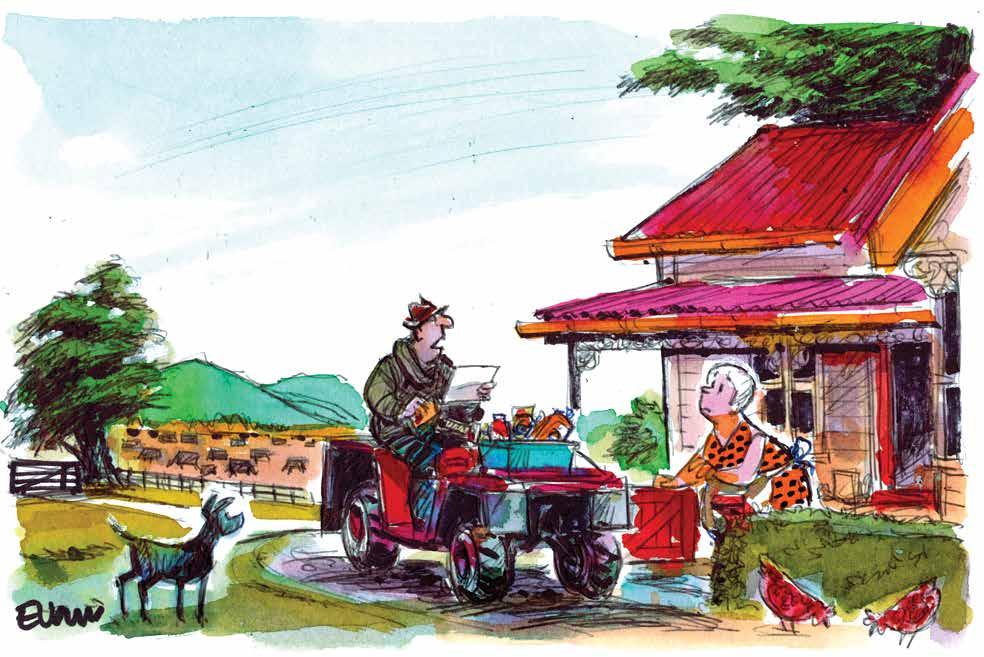
THE OLD saying ‘Everyone wants to go to Heaven, but nobody wants to die’ seems to apply to the wailing coming from public service entities facing cuts under the new Government’s belt tightening. Having enjoyed massive growth within their little empires over the previous six years, ministerial bosses are working hard to avoid any cutbacks, arguing that, while savings are important, they’re so special that they should be exempt. The Hound notes, for example, the PSA claims a 30% cull at the Ministry for Environment will ‘jeopardise work on combating climate change’. Unless the MoE staffers being cut were on the cusp of convincing China and India to stop burning coal, it seems unlikely their absence will affect global change one iota.

FONTERRA’S DECISION to exit the ‘value-add’ game and sell its consumer brands business seems to have been met with more cheers than jeers, although some commentators are wary of the strategy to simplify. It seems to your old mate that most of the people with skin in the game –farmer shareholders – like the decision to strip the co-op down to a lean, mean commodity machine. Fonterra’s track record in the consumer space hasn’t been stellar, and, if they keep their costs lean, stripping out the many fat salaries that come with a brands business, there’s nothing wrong with being one of the best dairy commodity producing businesses in the world. Maybe they could also ditch that fancy office in Auckland! Let’s see that put to a vote!
PRODUCTION: David Ferguson Ph 027 272 5372 davef@ruralnews.co.nz
Becky Williams Ph 021 100 4381 beckyw@ruralnews.co.nz
REPORTERS: Peter Burke Ph 021 224 2184 peterb@ruralnews.co.nz
Nigel Malthus Ph 021-164 4258
MACHINERY EDITOR: Mark Daniel Ph 021 906 723 markd@ruralnews.co.nz
REACTIONS TO Budgets are always predictable, following well-worn tracks laid down by political tribalism and ideology. Media framing of Budgets by some outlets has also become sadly predictable, following these exact same tracks. The blatant bias shown by state-owned One News when covering the 2024 tax cuts shocked even an old cynic like The Canine Crusader. In its 2021 report on Labour’s $20 tax cut, all One News interviewees were positive about the extra coin in their pockets, one even comparing it to a ‘Lotto win’. In its 2024 report on the current Government’s tax cuts, the chosen interviewees all said it was ‘stink’ or wanted more. If TVNZ need to cut its overheads, they could start with its news team!
AUCKLAND SALES CONTACT: Stephen Pollard Ph 021 963 166 stephenp@ruralnews.co.nz
WAIKATO & WELLINGTON SALES
CONTACT: Lisa Wise Ph 027 369 9218 lisaw@ruralnews.co.nz
Want to share your opinion or gossip with the Hound? Send your emails to: hound@ruralnews.co.nz
Thanks Chuck!
AFTER SIX years of being passed over for every Arts luvvie in the Queen’s Birthday Honours, agriculture has finally got some overdue recognition with the 2024 King’s Honours list bestowing gongs on some of our finest. Top of the list, in your old mate’s opinion, is long-serving Affco chairman, King Country farmer and Federated Farmers life member Sam Lewis. He has helmed the venerable meat company since 1999, steering it through the full range of seasons and structures. He started as an area representative on the board when it was a farmer co-op and stayed on as it went public, becoming chairman. He was still there when Open Country took it private a few years later. Congrats to Sam and all the other ag recipients.
SOUTH ISLAND SALES CONTACT: Kaye Sutherland Ph 021 221 1994 kayes@ruralnews.co.nz
DIGITAL STRATEGIST: Jessica Marshall Ph 021 0232 6446


BETWEEN farmers and industry innovators will be at the heart of helping New Zealand’s red meat sector move forward from one of its toughest years since the Global Financial Crisis.
Reports of significant financial losses by Silver Fern Farms and Beef & Lamb NZ forecasting certainly make for grim reading. They predict that farm profits could plummet 54% or $62,600 on average for the 202324 financial year. These are profit levels not seen since the 1980s, except for during the Global Financial Crisis between 2007-2009.
While New Zealand sheep and beef farmers are widely recognised as having one of the most environmentally efficient
farming systems in the world, our farmers are struggling.
In Putting Meat on the Bone, a briefing to the incoming Government Ministers in August last year, the Meat Industry Association and Beef + Lamb New Zealand (B+LNZ) set out the strategic challenges our farmers face and put forward recommendations about how we can turn it around.
These included putting the red meat sector at the centre of New Zealand’s economic strategy, and allowing streamlined, enabling regulation underpinned by robust impact assessments.
Aligning science & innovation
The points that really stood out for me however were the need to align New Zealand’s science and innovation to stra-
tegic outcomes for the sector, and the need to partner with industry to improve sustainability.
New Zealand’s red meat sector needs industry innovators to step up to the plate. They not only need to offer farmers products to solve their challenges, but also actively engage with them to co-create the solutions they need.
Farm tour highlights challenges
This became apparent to me on a recent tour I did with Angus New Zealand. The farmers we visited are facing a diverse range of challenges, from high input costs and environmental regulations to market volatility and labour shortages.
Despite these challenges, there was also unanimous belief in the potential of technology and innovation to drive
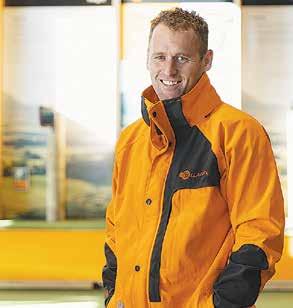
positive change within the industry. The role of technology & data
The simple truth is technology and datadriven farming hold the key to unlocking profitability and resilience in the red meat sector. But this transformation cannot be achieved
through off-the-shelf solutions alone.
Farmers need tangible solutions that deliver real value on the ground. This requires a concerted effort by industry innovators to understand each unique operation and develop targeted solutions that address their specific pain points.
Innovative partnerships
Gallagher has partnered with Angus New Zealand to raise the stakes for the industry.
Partnering to educate, assist and create value for New Zealand’s Angus beef sector. Our approach goes beyond simply offering products because we believe in the power of technology and data to transform farming systems and unlock new opportunities for growth and efficiency.
Driving farm profitability
This type of tech enables farmers to make strategic decisions based on data, ensuring the optimum management of every animal in their herd to maximise profitability.
We have also developed other bespoke weighing and EID solutions for farmers in the sector. These solu-
tions allow them to capture unique data fields that can drive everything from their genetic gains on farm to helping them breed an elite performing herd. They can also make animal management decisions at the absolute optimum time to mate, keep or cull animals to drive farm profitability.
Our red meat sector is under a wave of pressure. It is crucial we leverage our technology and innovation alongside them to drive efficiency and, in turn, profitability.
The red meat sector makes a massive contribution to our economy, $12b of export revenues in 2022. As industry innovators we owe it to them to step up to the plate.
• Mark Maitland is business development manager, Gallagher
@rural_news
facebook.com/ruralnews




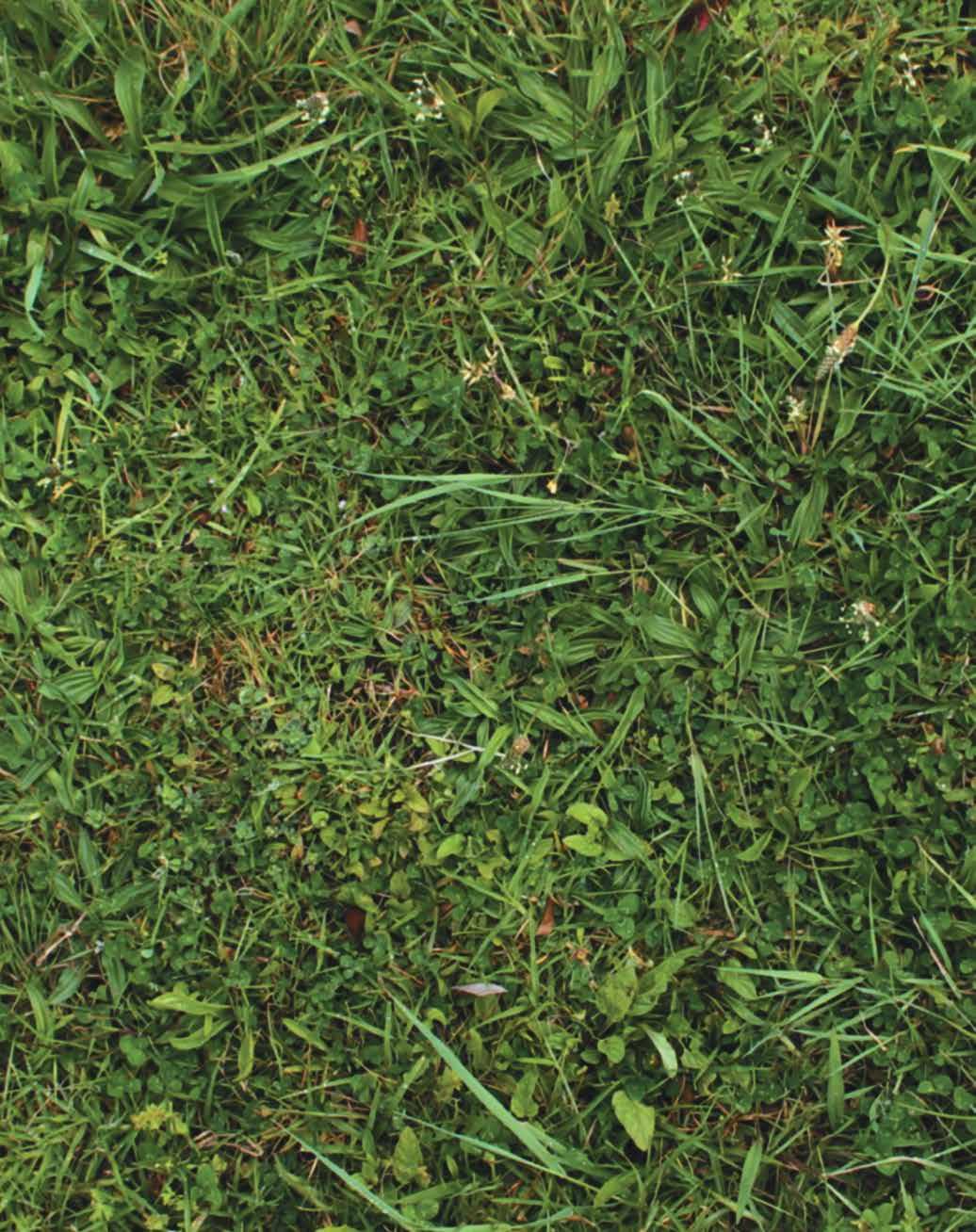
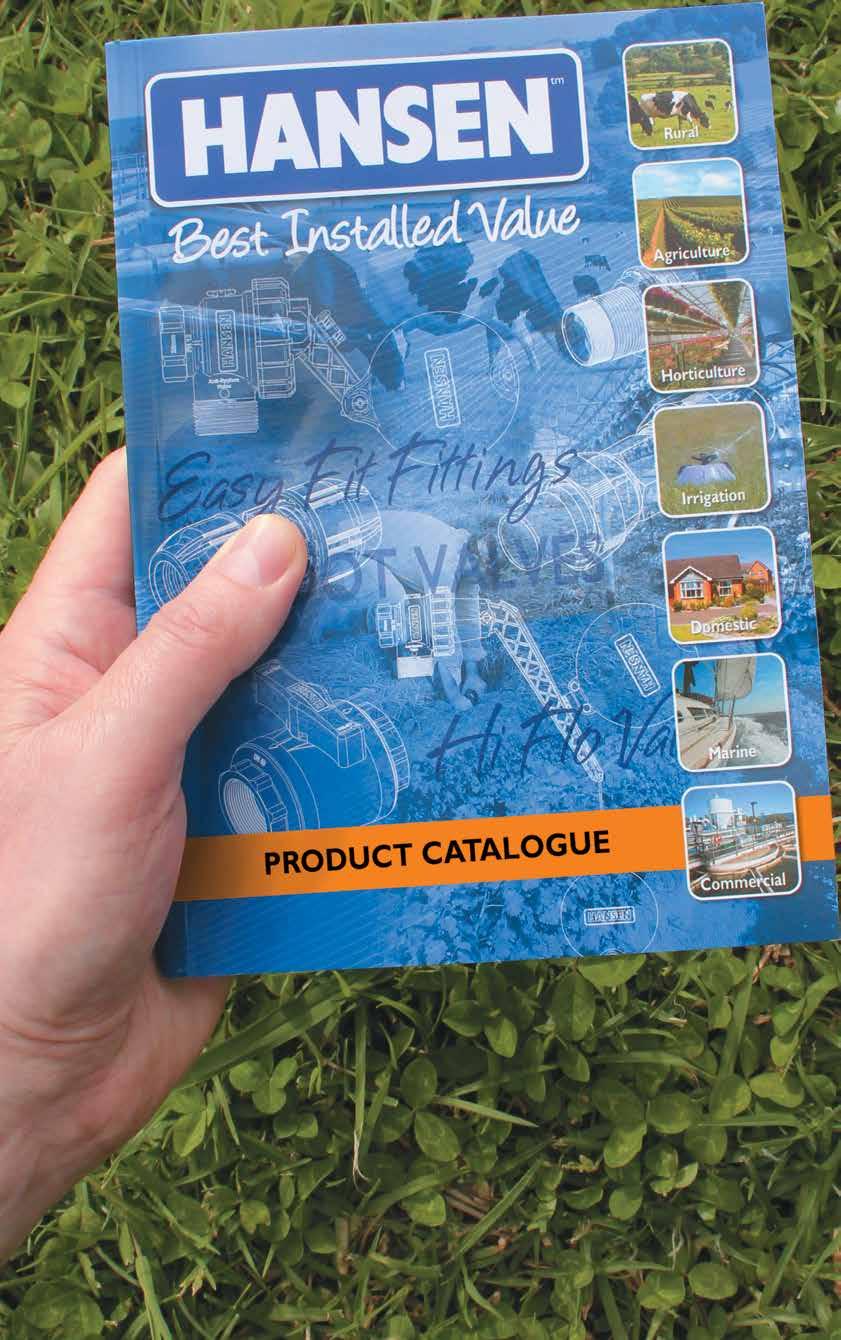


DURING THE last seven years, over 5000 native seedlings have been planted as part of Waimakariri Irrigation’s biodiversity project.
The project was launched in 2018 after 297 sites of ecological interest were identified across the irrigation scheme’s 44,000-hectare command area.
Fourteen projects are currently underway, with two projects at the Cust River, three projects at Burgess Stream and one project each at the Old Eyre and Hunters streams.
WIL biodiversity project lead Dan Cameron says the initiative aims to protect existing areas of ecological significance while also identifying sites for restoration that can improve biodiversity across the entire catchment.
“It’s not about doing projects here and there. We focus on areas of significance and look at sites

that are connected to shareholder land and the wider catchment.”
The concept of connectivity is key to Cameron’s work, and he believes this will drive the success of the project over the long term.
“Connectivity is a key principle of biodiversity, and we can’t work on habitat creation and restoration in isolation. We need to consider connections between each site with to eventually create an ecological corridor that provides pathways
for native fauna to follow.
“This is a longterm project over 30 to 40 years that extends beyond the irrigation scheme. We have already included local schools in this project and over time will broaden the scope to other organisations and the wider community.”
WIL chief executive Brent Walton says the map of key sites producing during the 2018 biodiversity survey has proved to be a useful tool for engaging with shareholders. “Having this map of


all the sites has given our farmers a visual idea of how the work that they are doing on their farms connects with the entire catchment.
“If we work our way up from the mouth of the Waimakariri River there are areas where we have connections, and if we can fill in those areas, we can create a good pathway.”
The project has used technology such as drones to efficiently gather data from each restoration site which


then can be shared via mapping software. Dan says technology is also helpful for practical aspects such as planting near farm infrastructure.
“We use the drone together with mapping software which provides data and metrics to track our progress.
“It is very efficient, and we use it to measure everything including practical issues such as which native plants will fit under pivots,” says Walton.
While improving and protecting biodiversity is a regulatory requirement for WIL, Walton and the cooperative view ecological restoration as part of their commitment to the broader community.
A GROUP of year 5 Swannanoa School students saw their yearlong native seedling project come to fruition when they planted their seedlings at Brian and Rosemary Whyte’s Swannanoa farm in North Canterbury last month.
The students have been raising native seedlings in a greenhouse at their school. The greenhouse and plants were provided by Waimakariri Irrigation Limited (WIL) as part of a biodiversity project which aims to enhance and improve ecological values throughout the 44,000ha area covered by the irrigation scheme.
WIL’s biodiversity project lead Dan Cameron says the students were excited to get involved with planting their seedlings and it was positive to see parents join the planting day.
“We have been working together with the school for a couple of years now. The idea is for the students to grow their own seedlings and for them to decide which project they would like to contribute the plants to once they are mature enough to plant out. In this case, we had 160 plants from the school with the remaining 367 plants grown in a greenhouse on Brian and Rosemary’s property.”
Cameron was also heartened to get positive feedback from another WIL shareholder who attended the planting day who indicated interest in holding a similar planting day at their farm.
“The key to the success of this type of project is that farmers can see what their peers are doing and then put up their hand to get involved. The idea is for it to happen locally and organically as it is about farmers and the community working together with the irrigation cooperative to improve the environment for everyone.”
Other local schools involved in the biodiversity improvement project including West Eyreton School and Cust Preschool will be planting their native seedlings at reserves and along riparian margins near Oxford this month.
“Primarily, it’s the right thing to do. When you look at it from a catchment approach, what we do here on our farms impacts a non-WIL shareholder and the community downstream. We want to improve what we already have here in terms of biodiversity and then work together with other organisations and the community to create those long-term connections from the sea to the mountains.”



A NATIONAL pest management plan to eradicate Mycoplasma bovis (M. bovis) will come into effect by the end of this year.
The plan, approved by the Coalition Government, was proposed by the programme partners DairyNZ, Beef + Lamb New Zealand, and the Ministry for Primary Industries (MPI). It will shift M bovis accountability from MPI to OSPRI.
Biosecurity Minister Andrew Hoggard says this is a hard-fought step forward for farmers and will provide them with a one-stop shop for disease management and traceability.
OSPRI works with the farming industry to manage animal disease and provides the National Animal Identification Tracing system.
“The move will help take advantage of efficiencies and protect our investment in eradication made to date,” Hoggard says.
“The eradication was estimated to cost $870 million in 2018, a significant investment in our
• Active Confirmed Properties – 0
• Cleared Confirmed Properties – 282
• Properties under Notice of Direction – 8
• Properties under Active Surveillance – 25
• Compensation paid - $285.1 million
• Claims processed to date – 2,961
“At present we have no infected farms, and we are focused on the national surveillance of cattle.”
farming sector from the Crown and farmers, who have contributed 32% of the funding.
“It is important we protect this investment and the hard work of all involved, including the sacrifices made by farmers, by ensuring the fitfor-purpose M. bovis Plan is implemented.
“At present we have no infected farms, and we are focused on the national surveillance of cattle. There’s more to


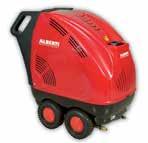


do before we reach the end of this journey, and it is possible we will find more infection before we get there but the move to a national pest management plan is another big step forward.
“The plan will ensure that OSPRI has the tools needed to continue to build on the success achieved.
“I want to thank DairyNZ and Beef + Lamb New Zealand for their support. The partnership approach has set this response apart and is a great example of how government and industry working together can achieve better results for all. but most of all I want to recognise the intense stress and emotional toll that has been felt by the farmers that have been caught up in this response”.

A BIOSECURITY levy, imposed on dairy farmers to fight Mycoplasma bovis, will reduce by 66% from next month.
The Biosecurity (Response –Milksolids) Levy will reduce from 2.4c/kgMS to 0.8c/kgMS from July 1.



DairyNZ chair Jim van der Poel says the 66% reduction in the levy dairy farmers pay reflects the good progress made in response to M. bovis
“When the sector works well together, we get results,” says van der Poel.
“While we may still see a few more cases, we are now approaching the surveillance phase and costs have reduced, thanks to a combined effort.”
The M. bovis Programme is now six years into a 10-year eradication plan with currently no active, confirmed properties.
DairyNZ is a partner in the programme, with the Ministry for Primary Industries (MPI) and Beef + Lamb NZ.
DairyNZ director Chris Lewis says the decision to reduce the Biosecurity Response Levy was made with confidence.
“We’re in a good place right now and this levy reduction will be some relief to dairy farmers, ensuring they do not pay more than is required. The programme

says the
to eradicate M. bovis has been at a huge financial and emotional cost to New Zealand farmers, yet the cost of letting it spread would have been much higher.”
The M. bovis eradication programme has cost around $722 million to date. It was estimated the cost of letting it spread would have been $1.3 billion in lost productivity in the first 10 years alone.
Lewis says that around 98% of New Zealand dairy farmers have helped the 2% of farmers affected by M. bovis.
“The Biosecurity Response Levy has been invaluable in the response
to M. bovis. Without the collective effort of dairy farmers pitching in, we wouldn’t be where we are today with a stronger, more resilient biosecurity system.”
This is an important time too to highlight that good biosecurity practices and keeping NAIT records up to date will ensure the risk of M. bovis and other livestock diseases are minimised.
The industry cost share for the M. bovis Programme is 32% of the total cost, with DairyNZ paying 94% and Beef + Lamb NZ paying 6% of the industry cost share of eradication.
HAVING TAKEN over from the previous distributor, who represented the brand for two decades, Landini New Zealand marks the beginning of a new distribution deal with Norwood, with a first look at Fieldays.
The agreement will see a wider range of Argobuilt Landini tractors available through a retail network that includes Norwood dealerships
operations. The Active transmission is 40km/h only, the Dynamic is 40-50 km/h, both fitted Robo Six/ Smart APS.
The Series 7 VS Dynamic T3/Stage 5 is the larger framed V-Shift / CVT transmission Series 7, available in two models, a Tier 3 and or Stage 5, both with 6-cylinder, 6.7l engines ranging from 215hp to 230hp.
Series 8 VS Dynamic T2/Stage 5 is available in two models, the Stage 5 at 250hp and the Tier 2 at 292hp,
“The extended range includes five high horsepower Series tractors in 12 models, six specialty tractors with 20 models, and seven hard working utility tractors in 22 models.”
ROPS and Cab versions, with either Active or Dynamic transmission.
The Landforce series, said to be suited to livestock farmers, is available at 112hp or 120hp, in both ROPS

and several independent dealers to provide nationwide coverage for sales and after-sales support.
“We are excited to be distributing tractors that have previously not been available in the New Zealand market,” says Andrew Dunlop, product lead – Argo.
“The extended range includes five high horsepower Series tractors in 12 models, six specialty tractors with 20 models, and seven hard working utility tractors in 22 models.”
Series 6 RS is a cabinonly, three model series from 113hp to 136hp, utilising a 4-cylinder, 4.5litre, Stage 5 FPT engine, mated to a Robo Shift and Smart APS (Auto Power Shift) transmission.
Series 7 SWB Dynamic offers four models: two 4-cylinder models and two 6-cylinders models, with the option of the Robo Six/ Smart APS or V-Shift CVT transmissions, ranging from 165 to 175hp. The Series 7 RS Active/ Dynamic T3 has three models from 151hp to 215hp, fitted with a larger frame, 6-cylinder, 6.7l, Tier 3 FPT engine and electronic power boost when using the PTO for transport and hydraulic
and Cab version with full loader options. The Landpower is available in four models from 117hp to 157hp in ROPS and Cab versions with a full loader kit.
Landininewzealand.co.nz.

both using a 6-cylinder, 6.7l FPT engine with VS and a choice of 40km/h or 50km/h CVT transmission, with front hitch and dynamic PTO as standard.
The Landini utility range is designed for general farm work, so are particularly suited to livestock farms. The Series 2 is the standard version of the Specialty GE, available in 48hp to 55hp, with ROPS and Cab layouts and a loader option.
Series 4 Stage 5 is a new release, offering a fully featured small tractor, in three models, from 61hp to 75hp, in ROPS or Cab configurations, available as factory loader ready or with the full kit option. The Super is a robust farm tractor in four models from 82hp to 111hp, available in ROPS, Cab, and High Clearance versions.
Powerfarm II offers a higher spec cab-only tractor in three models from 93hp to 110hp, loader ready with a full kit and featuring an upgraded three-step transmission with Power Shuttle.
Series 5 Stage 5 is also a high-spec tractor in four models from 75hp to 112hp, available in both





WHEN CYCLONE Gabrielle hit in February 2023, it left an estimated $13.5 billion worth of damage across New Zealand. After its effects became apparent, the Commence the ReFence initiative was born, with Federated Farmers involving fencing contractors and the ‘Farmy Army’ volunteers to assist, while machinery dealer Stevenson & Taylor, in conjunction with CNH, donated two tractors – a Case IH JX100 and a New Holland TD5.90 – to help farmers in the Hawke’s Bay and Gisborne areas reinstate kilometres of lost fencing.
Now there’s a welcome reason to smile for at least two of the farm families who were impacted by the disaster.
Once Commence the Re-Fence came to an end, the intention was to donate the two tractors to farmers seen as in need of some additional support. People were asked to nominate a farmer severely impacted by the disaster and who was seen as in need of some extra help. After dozens of nominations were received, CNH network development business manager Murray Grant oversaw the tough task for those making the final decision.
“Deciding who would receive them was a very
moving and difficult experience, especially considering many of the nominations were done by neighbours or community leaders who knew firsthand what people had been through. It was inspiring to see the resilience, courage and bravery of these farmers in the wake of the disaster, and the amazing support everybody provided to help people get back on their feet,” Grant says.
In early June the two recipients were announced, with Lil Poulton putting the Case IH tractor to work on her property in the Patoka district, and Colin Skud-

der from Tokomaru Bay taking home the New Holland, both farmers overwhelmed by the gesture.
Poulton and her chil-
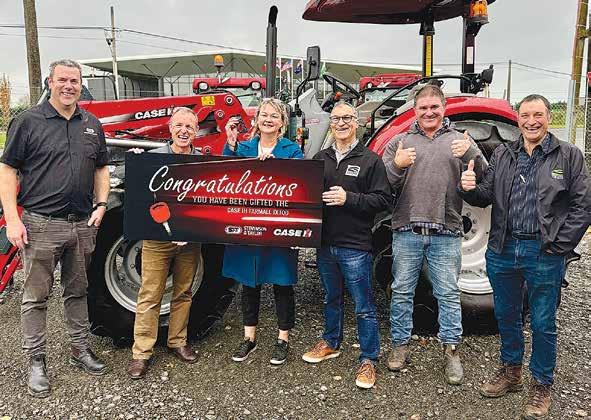
a tough road, made even harder with the loss of Lil’s husband Rob only a few months after Gabrielle swept through.
With a 20-plus yearold tractor doing all the work up to now, the new tractor, she said, would be of great assistance.
“It’s just so incredible to have been given this tractor and we’re so grateful and very humbled.
badly affected by the cyclone, with stock, fencing and land lost, it was Colin’s efforts as the Civil Defence Lead for Tokomaru Bay that secured him the New Holland TD5.90.
Skudder says he “felt a bit overwhelmed and humbled”.
“Because, to be honest, there were so many who were worthy of the nomination. We all worked so hard over the five weeks we were locked in Tokomaru Bay,” he says.
During the enforced isolation after the cyclone, Skudder was instrumental in clearing a track that allowed the transportation of hospital staff, medical supplies, food and water as well as helping tradesmen to get to Te Puia Springs daily.
Skudder’s nominee says, “For two weeks, no vehicles could get in and out of Te Puia Springs and Colin’s track, as well as the expertise to drive the track in hazardous conditions, was vital for the welfare of staff, patients and residents of Te Puia Springs.
dren Ruby, Henry and Oscar have a 440ha property where they run a sheep and beef operation. They lost a lot of fences and two bridges
during the cyclone, as well as tracks and culverts severely impacted by erosion.
The Commence the Re-Fence project helped
reinstate some of the fencing, a bridge has been rebuilt and Lil said they were almost back to pre-cyclone production levels. But it’s been
“The level of support we’ve received has been amazing, and to me it shows our rural communities are just the best people,” Poulton says.
Colin Skudder is the manager of Marotiri Farm Partnership in Tokomaru Bay on the East Coast. While the property was
“If it wasn’t for Colin and his innovative transport solutions, staff of Te Puia hospital, who had been working 24/7, would not have been relieved, staff taking over would not have arrived, the shop would not have had power and residents and the hospital would not have received medication or gas to cook with.”







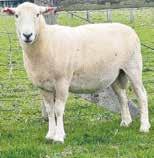


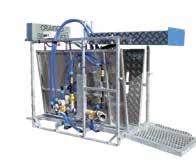


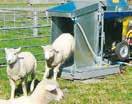




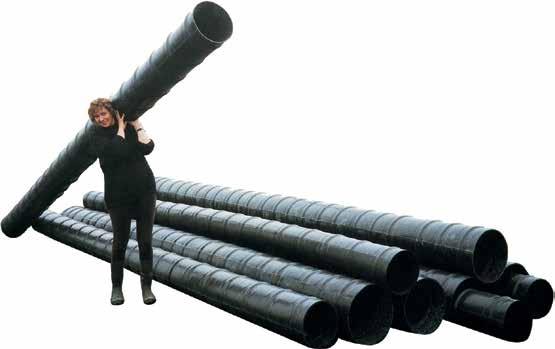








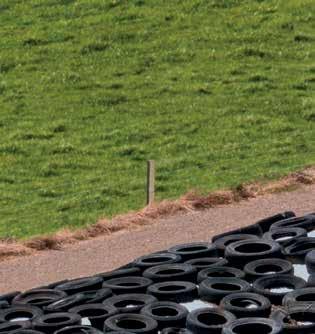

PERFECT PARTNER PASTURE’S

